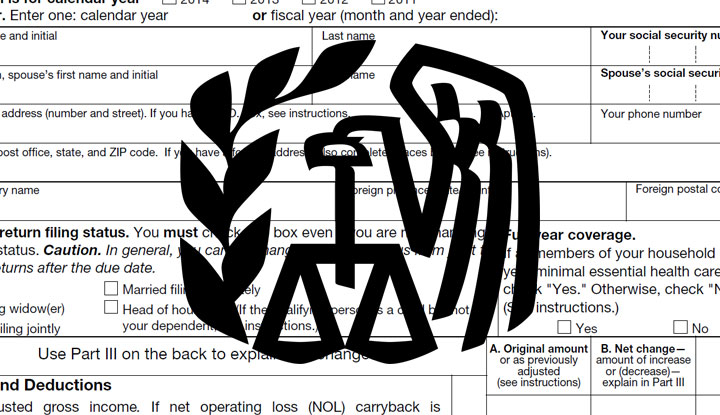If you’re a small business owner, the prospect of an IRS audit can be intimidating. Your heart races, your hands start to shake, your mouth goes dry. No, it’s not your first blind date. It’s your first IRS audit.
“Short on personnel and funding, the IRS audited only 0.86% of all individual tax returns in 2014. And the 2015 audit rate will definitely fall even lower as the agency’s resources continue to shrink.” (Kiplinger) While the odds may be in your favor, business owners still have a higher likelihood of facing an audit.
According to Nolo.com, “The IRS uses sophisticated computer algorithms to decide on which returns to audit. If your return looks strange, your chances of being audited go way up.”
If something in your business tax return sent up a red flag what do you do? You can start by putting down that audit letter, taking a deep breath and checking out these five small business IRS audit tips:
-
Don’t take it personally.
An IRS audit is a process, not a punishment. Your business isn’t being singled-out by a government that is out to get you. It’s being audited because a computer program picked up an apparent discrepancy on your business tax return for a specified year.
This doesn’t mean you have done something wrong, that your entire tax history will be scrutinized, or that you will end up paying the government anything. It simply means the IRS wants to look at a specified claim on your business tax return to make sure you have the records to verify it.
-
Respond promptly.
While an audit letter shouldn’t be taken personally it needs to be taken seriously. So, you’ll want to respond to the IRS auditor assigned to conduct the audit in a timely and courteous manner. If you feel you need more time to gather data and prepare a solid response, call the IRS right away and request an extension. If it’s your first request they will typically grant an extra 30 days.
Putting off your response in hopes the IRS will go away is not a good strategy. A late response can make the audit process more time-consuming than it would be otherwise. It could also be viewed as a lack of cooperation, which may cause your IRS auditor to make the audit more comprehensive than it was originally intended to be.
-
Provide only the documents requested.
You run your small business honestly and have nothing to hide. But that doesn’t mean that you should give the IRS access to more documents than they request. While doing so may seem like a good way to show the IRS you aren’t hiding anything, it can lead to needless questions. This can result in taking up more of your valuable time and potentially prompting the auditor to look at tax returns from other years not specified in the audit. So, keep it simple and provide only the documents requested and only for the year in question.
-
Consult a professional.
Face it. You may be educated in business, but unless you are an accountant or tax attorney you probably know little about business tax law. Which means that when faced with a business audit you will want to seek the advice of a professional. While this may seem like an expensive course of action it doesn’t have to be.
If you use a reputable tax preparation software package to complete your business taxes, you should have free access to advice from a trained tax professional to help you understand what the audit means and answer any audit–related questions you might have, such as what to expect and how best to prepare.
If you had an accountant do your business return they can help you properly prepare for the audit and even accompany you to make sure the auditor stays within specified parameters and that your claims are properly presented. Consulting with a tax professional is money well spent and could end up saving you a lot of money in return.
-
Learn from the experience.
Successful entrepreneurs make mistakes. But they learn from those mistakes and make their businesses better. While an IRS audit can be a scary experience, it can also teach you the importance of keeping detailed records and receipts to document all claims made on your business tax return. It can reveal your strengths and weaknesses with regard to record keeping, at the same time providing greater clarity regarding deductions you are entitled to take and those you are not.
Ultimately, an audit should inform better accounting practices in the future to insure that your business gets all the tax breaks it can and that the dreaded audit process doesn’t happen again
This article has been edited and condensed.
Brian Clay is a Utah-based freelance writer focused on web design and content marketing.
© YFS Magazine. All Rights Reserved. Copying prohibited. All material is protected by U.S. and international copyright laws. Unauthorized reproduction or distribution of this material is prohibited. Sharing of this material under Attribution-NonCommercial-NoDerivatives 4.0 International terms, listed here, is permitted.





